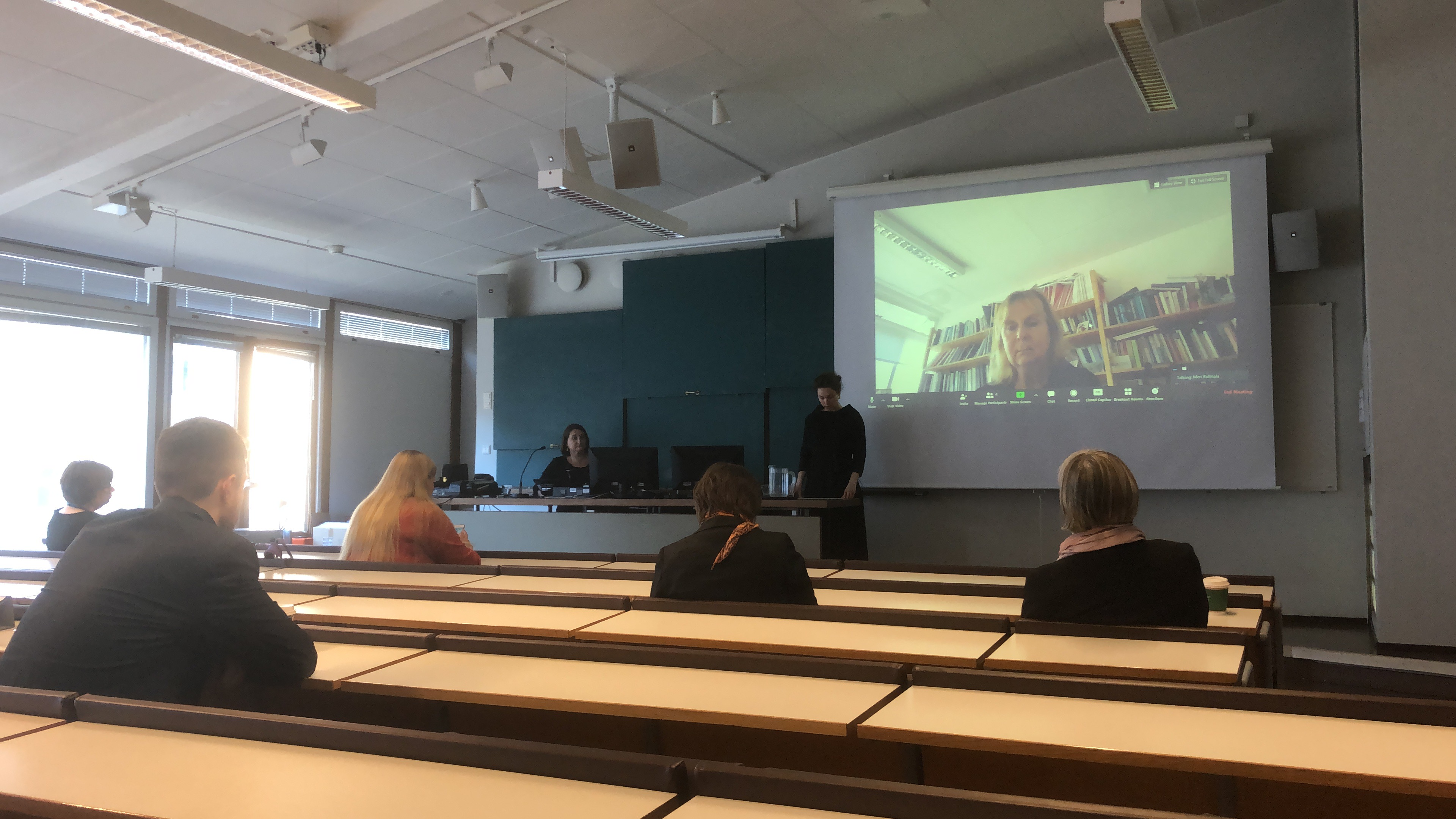INREES continues the KONE-funded YRUSH programme by offering Russian postgraduate students the possibility to conduct a short, 1-2 month visiting fellowship at Aleksanteri Institute. An alumnus of the YRUSH programme, Artūrs Hoļavins, wrote a wonderful piece on his experiences from his three-month fellowship. For Artūrs, the fellowship was particularly productive. Read his thoughts and the reasons why he recommends a visiting fellowship to the Aleksanteri Institute below. More information on applications for INREES visiting fellowships will be provided in autumn 2020 on this website.
YRUSH & Self-distancing
When I was asked to write about my YRUSH programme experience in the context of the current covid19 pandemic, I felt stumped at first. The self-isolation is nothing new for me. I am precisely that one introvert from memes, who did not feel any difference between “before” and “after” isolation. Not mentioning the fact that Sweden, taking, probably, the most relaxed approach to the pandemic in Europe, has not imposed any meaningful restrictions against me going to park or a supermarket nearby.
Anyway, here it is a month in the apartment, sitting in front of the computer. No children, dear wife, with whom I had a distance marriage before and, thus, enjoy every minute rather than feeling spaced. It is like most of my life, but also with someone real to share with thoughts. After all, my PhD studies had been like one extended quarantine. I even remember being called by my supervisor in St. Petersburg “biryuk” (a Russian word I would loosely translate as “grumpy cat”). An organisational structure of my PhD programme in Russia (and, later, in Finland) – with no working space or any other institutional, physical affiliation except for scholarship transfers to the bank account – contributed to this isolation. To put it simply, of five years of my PhD, I had my working computer and an office chair just twice: three months in the University of Glasgow and… three months in Aleksanteri Institute.
Here my introduction finally comes to the point. In short, the YRUSH fellowship – an opportunity to have a safe, well-paid space together with actual office space – was an outstandingly exceptional part of my doctoral student life. Altogether, I had three visiting research grants. In North Carolina, I had to push myself every morning to go to the university library. The internal voice had been bringing the point every morning: why to go to the library if you can work from home? It is summer, there are no coursemates, other researchers or even a kitchen to have lunch in. I would often give up to the voice, writing a dissertation while sitting in the internal yard and watching chipmunks jumping around.
In Glasgow, it was all different. I had a working space shared with an intelligent and friendly Scottish professor. I recently finished with my fieldwork and had been starting to write the actual text (I bet, not a single word from that text has ended up in the final version…). Thus, having a professor around was definitely more engaging than chipmunks or roes (a side note: both North Carolina & Glasgow had amazing supervisors, so the chipmunk narrative is more of an exaggeration for literary purposes; all visits boosted my progress in doctoral research). Yet, again, there was no community to join, no teambuilding events, no regular research seminars or late night bar-based scholarly debates.
All that was not the USA and the UK, it was Finland. I was already the second year of my University of Helsinki PhD programme (a continuation of my Russian research endeavours) when I actually got an opportunity to visit the new Alma Mater. The YRUSH Fellowship. Needless to say, I am grateful to everyone who favourably counted me as “Young” (30 years old) “Russian” (a Latvian citizen based in Riga at that particular point) “Scholar” (Hirsch index still being a shameful zero then). And, yes, it all has changed thanks to the Aleksanteri Institute.
To begin with, I got my first citations during the stay (yes, we all know that correlation does not imply causation). Second, I finally had a chance to work 9 to 5 as a researcher, not as an
assistant or administrative personnel. Third, there was a community of diverse, smart, inspiring scholars around. Not just sitting in different rooms, but actually coming to visit you, ask a question, invite for a tea or a weekly planking exercise. Can’t help to say that it was a great honour to have a chat with those, whom you usually cite, and great fun to hear success stories of an older generation of scholars. They had the same doubts and managed to survive rather than “perish”. It sky-rocketed my confidence. Since the stay in Aleksanteri, I got my thesis finalised, two articles published and two others accepted, as well as two more sent for a peer review. Three of those articles had been written during the stay. Who would imagine three-month stay could be so productive?
It was not just an office chair, which was a game-changer, of course. It was all together: a friendly and engaging community, supportive administrative staff, disciplining existence of the working space, a kitchen to bring your own lunch box, countless conferences and seminars, team building events including a boat trip around the Helsinki archipelago, sauna in the academic hotel (you are not supposed to praise Finnish fellowship without mentioning sauna, aren’t you?), tasty free breakfasts. But, most importantly, it was a persistent feeling of being visible, needed, approved. In other words, Aleksanteri Institute and the YRUSH fellowship nourished a heart-warming sense of being a part of the academia (and the feeling that academia is not a concept, but the real people), which.
I am still in a limbo awaiting the decision by the reviewers and being a househusband after moving to Sweden to reunite with my wife. Pandemics undeniably makes our lives uncertain and worrisome too. It is also already half a year since I have left the beautiful shore of Finland towards my native Baltics. Yet, the positive energy, academic successes and the feeling of being part of the good science are what still drives me forward.
Artūrs Hoļavins (Артур Холявин),
the elderly care, third sector, social work and gender studies researcher.



